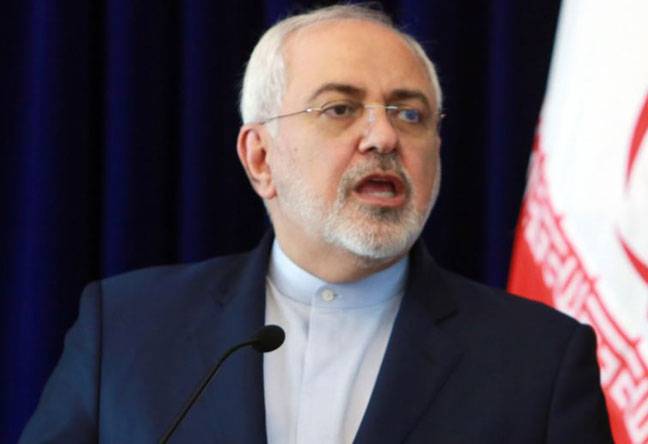LONDON - Iranian Foreign Minister Mohammad Javad Zarif has warned that the only way to stop its nuclear deal from collapsing is for Europe to defy any US reimposition of sanctions.
In an interview published Saturday by Britain's Guardian newspaper, Zarif said Iran would develop much more advanced nuclear technology - though not for weapons purposes - if Europe followed the United States in returning to a sanctions regime. "Europe should lead," he said during an interview in New York.
The deal, agreed in 2015 between Iran and six world powers - the United States, China, Russia, France, Britain and Germany - lifts economic sanctions put in place in 2005 in exchange for curbs to Tehran's nuclear programme.
The International Atomic Energy Agency (IAEA) is responsible for verifying that Iran meets the terms of the agreement. US President Donald Trump has attacked the deal on numerous occasions, vowing to tear it up.
On October 15, Trump is due to testify to Congress whether Tehran is complying with the deal and whether it remains in the United States' interests to stick by it.
If he decides it is not, it could open the way for US lawmakers to reimpose sanctions, leading to the potential collapse of the agreement. "I think he has made a policy of being unpredictable, and now he's turning that into being unreliable as well," Zarif said.
"My assumption and guess is that he will not certify and then will allow Congress to take the decision."
He said that if the United States scuppers the deal, the decision would prove counter-productive. "The deal allowed Iran to continue its research and development. So we have improved our technological base," he said.
"If we decide to walk away from the deal we would be walking away with better technology. It will always be peaceful... but we will not observe the limitations that were agreed on as part of the bargain."
Zarif said "walking away" was one of the options being considered by Tehran. "If Europe and Japan and Russia and China decided to go along with the United States, then I think that will be the end of the deal," he said.
Washington on Thursday pressed for the IAEA to carry out more nuclear inspections in Iran, warning that failure to do so would make the nuclear deal with Tehran "an empty promise".
RIGHTS GROUPS SUE TRUMP
ADMIN OVER TRAVEL BAN
Human rights organisations announced Friday they are suing the Trump administration over the latest version of the president's controversial travel ban, continuing a long-running legal battle over the restrictions.
At the forefront of the challenge is the American Civil Liberties Union (ACLU), which along with partner organizations submitted a letter to the US District Court in Maryland seeking to amend an existing lawsuit they already filed.
The new travel ban, unveiled by the White House late Sunday, forbids citizens of seven countries from travelling to the United States - citing national security reasons. Under the ban, citizens of Yemen, Syria, Libya, Iran, Somalia, North Korea and Chad are all prohibited from entering the US.
Also suspended are certain Venezuelan government officials and their families, due to what the US called poor security and a lack of cooperation with American authorities.
The new ban "is still a Muslim ban at its core, and it certainly engages in discrimination based on national origin, which is unlawful," ACLU director Anthony Romero said Friday.
"Adding a few North Koreans and a tiny group of Venezuelan officials doesn't paper over the original sin of the Muslim ban. We'll see President Trump in court - again," he added.
The second version of the travel ban was the subject of numerous court battles, and was poised for examination by the Supreme Court in Washington on October 10.
But the court cancelled the scheduled hearing Monday while it considers whether the new travel ban renders it irrelevant.






